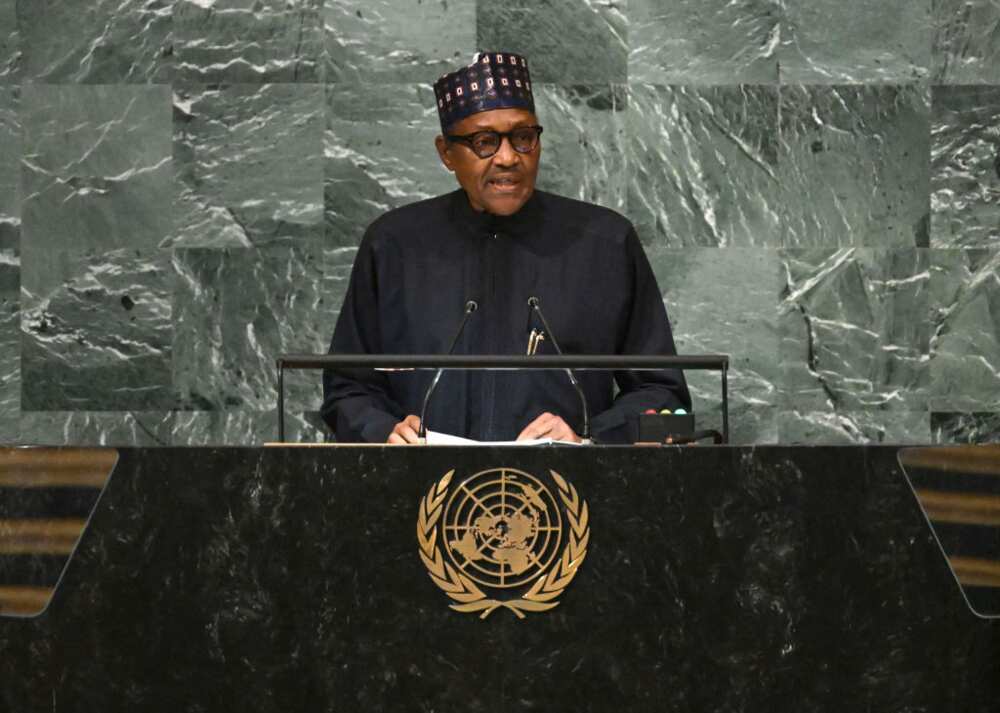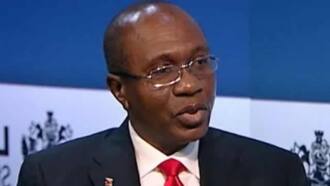World Bank Says Nigeria’s Economy Unstable and Threatened by Many Factors
- The bank said that the economy had not attracted significant domestic and foreign investments despite its recovery from the recession
- The NBS, however, listed states in Nigeria with the highest capital inflows in 2022, with Lagos attracting the most investment
- The World Bank has predicted that Nigeria is in a state of instability and threatened by several factors.
PAY ATTENTION: Click “See First” under the “Following” tab to see Legit.ng News on your Facebook News Feed!
The bank said Nigeria’s economy is highly insecure and subject to external factors.
In a draft report for the State of Action on Business Enabling Reforms by the bank, it said Africa’s biggest economy’s ability to attract domestic and foreign investment is decreasing, and the country’s welfare is getting worse despite recovering from recession.

Source: Getty Images
Economy expected to recover in 2022
The report said that although the country’s economy from 2021 to 2022 recovered from the recession caused by the COVID-19 pandemic and lower oil prices, it grew by 3.6 per cent in 2021, with an expected growth rate of 3.2 per cent this year.

Read also
CBN gives commercial banks 48 hours to deposit over N6trn customers deposit into its account
PAY ATTENTION: Join Legit.ng Telegram channel! Never miss important updates!
According to reports, Nigeria’s economic outlook has remained uncertain and threatened by many factors, including the impact of the Russian invasion of Ukraine on the global economy, less than expected oil production due to inefficiencies in the sector, increased insecurity and lack of policy direction.
Also, the forthcoming general elections in 2023 are seriously affecting the country’s economy and declining private sector investments.
The bank emphasised that the country needs to be more flexible and transparent with its forex management regime, rev up revenue-based fiscal consolidation, and strengthen expenditure and debt management.
It also said the country needs to improve its business-enabling environment.
However, the National Bureau of Statistics (NBS) report has revealed that 32 states in Nigeria have failed to attract foreign capital inflows in the second quarter of 2022.
The total capital inflow into the states stood at $1.54 billion, with Lagos attracting the most at $1.05 billion, followed by Abuja at $453.9 million.
Others are:
- Anambra: $24m
- Kogi: $2m
- Ekiti: $500,000
States with the highest foreign investment
Only six states attracted a total of $1.57 billion as capital importation.
The states include Abuja, Anambra, Katsina, Lagos, Oyo, and Plateau.
CBN insists on giving loans to Nigerian despite IMF's warnings
Legit.ng reported that the Central Bank of Nigeria has insisted that its credit interventions are supporting the Nigerian economy, saying it will continue issuing credit facilities to Nigerians as that is a way to bolster the economy.
This is despite the warnings by the International Monetary Fund (IMF ) that the apex bank should scale back on its interventions as that is unhealthy to the economy.
The CBN Governor, Godwin Emefiele, in a communique said this at this year’s maiden edition of the Monetary Policy Committee (MPC) meeting in Abuja on Monday, March 21, 2022.
Source: Legit.ng

